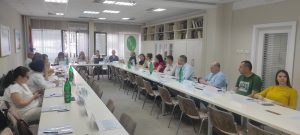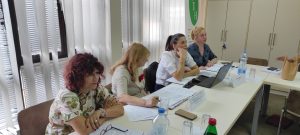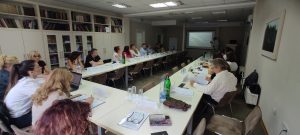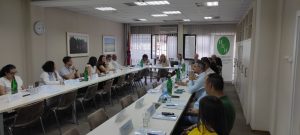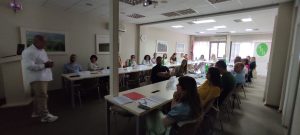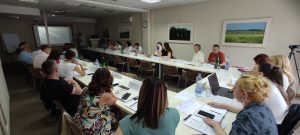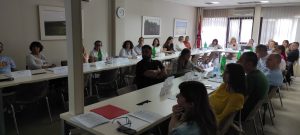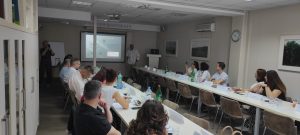As part of strengthening national capacities for climate action and green transition through carbon accounting and decarbonisation, a technical training on “Strategic Approaches to Carbon Accounting and Decarbonisation for Serbia” was held in Belgrade on 11 June 2025, organised by the Food and Agriculture Organisation of the United Nations (FAO) and the European Bank for Reconstruction and Development (EBRD) in cooperation with the Institute for the Application of Science in Agriculture (IPN) and the Serbian Chamber of Commerce.
The event was attended by representatives of the agricultural industry and the private sector, scientific and educational institutions, the Environmental Protection Agency, advisory services, relevant ministries and financial institutions. The aim of the training is to provide concrete knowledge about the methods for calculating and reporting greenhouse gas emissions and tools for planning decarbonisation measures in accordance with European and global standards.
The participants of the training were introduced by Prof. Dr Snežana Janković, Deputy Director for Science at the IPN and moderator of the event. She emphasised the importance of institutional cooperation and the application of scientific knowledge in creating sustainable solutions.
The lecturers of the training are prominent experts in the field of climate change and emission management: Prof. Dr Željko Dolijanović and Prof. Dr Slaven Prodanović (Faculty of Agriculture, University of Belgrade), Dr Dragana Vidojević and Ivana Dukić (Environmental Protection Agency), as well as Prof. Snežana Janković, Ph.D., Divna Simić, Ph.D. and Marija Gavrilović, Ph.D. (Institute for the Application of Science in Agriculture).
The programme includes:
– The importance of carbon accounting for climate change mitigation;
– Emission sectors according to the International Panel for Climate Change;
– The key steps in calculating and reporting carbon emissions;
– Carbon accounting and reporting in practise;
– Tools for carbon accounting and
– Application of carbon accounting in the corporate environment.
Through interactive exercises, participants have the opportunity to apply the acquired knowledge to concrete business examples. This is an important step towards strengthening the competitiveness of domestic companies in the context of upcoming EU regulations and international markets. The Ministry of Agriculture, Forestry and Water Management and the Chamber of Commerce of Serbia welcome initiatives that contribute to a better understanding and practical application of mechanisms for adaptation to climate challenges, especially those that connect the scientific community, the public and private sectors and financial institutions. It is expected that the knowledge gained from this training will contribute to more effective planning and implementation of emission reduction measures in line with national and international commitments.

